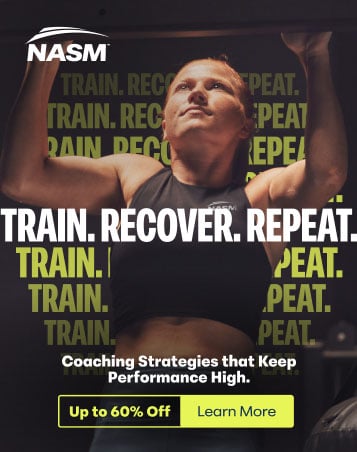“Well, there it is again… another disappointing number. I just don’t understand. I trained hard at the gym all this week and I know I ate healthy too. I was feeling great until I saw the number on the scale that indicated I haven’t lost a pound this week. What a wasted effort.”
Does this sound familiar to the thoughts you may have or your clients might share after stepping on the scale?
Weight is just a number that cannot define how healthy you are, nor define your worth. It is just one measurement of your mass at that single snapshot in time. It does not tell you muscle mass, body fat percentage, organ mass, bone mass, how much food or fluid you have consumed, etc. If the number on the scale is used to assess health status without any other data, it doesn’t tell us anything. So why does it mean so much (sometimes everything) to so many people? Is it possible to view your body as healthy without the scale?
What is body image? (As defined by The National Eating Disorder Association)
- How you see yourself when you look at yourself, visualize yourself in your mind or see yourself in a picture
- How you view your appearance overall or specific body parts (height, shape, weight, etc.)
- How you feel in your own skin (how comfortable you are in your body)
Do you have a “negative” body image?
- Do you have a distorted perception of your body or body parts?
- Do you believe only others are attractive and your body is a failure?
- Are you ashamed, self-conscious, and anxious about your body?
- Do you feel uncomfortable and awkward in your body?
Do you have a “positive” body image?
- Do you have an accurate perception of your overall body, shape, body parts?
- Do you appreciate your natural body shape and understand that your physical appearance is only one piece of you and your character says more about you as a person?
- Do you accept your unique body and thinking about weight, shape, calories, etc., should only be one aspect of your life?
- Do you feel comfortable and confident in your body?
Unfortunately, it has become an almost normal part of everyday society to be dissatisfied with your body. This can lead to disordered eating or eating disorders. However, if you find yourself dissatisfied with your body, ask yourself what else may be bothering you. Maybe you are feeling inadequate over a project at work; stressed over a deadline; dealing with anxiety, etc. If these feelings come up repeatedly seek out a counselor or therapist and a dietitian that can assist you in formulating a healthy body image.
A clearer picture of health status would include measurements of body composition, blood glucose, cholesterol, and blood pressure. These measurements could tell you what actually makes up the weight and if how much you weigh is healthy for you because everyBODY is different.
Your body shape and size are impacted by a variety of factors (some out of our control):
- Genetics
- Cultural influences
- Gender
- Age
- Environment
- Dieting
- Body composition
- Activity
Sometimes we try to control our calories or the foods we eat by following diets where every item is measured with calories and content detailed. Counting calories and rigid dieting isn’t typically a habit that can be done long-term because they are very restrictive and don’t teach you how to make healthy food choices as a part of your permanent lifestyle.
Following a very restrictive diet (unless medically necessary) or drastically cutting calories can be potentially harmful to your body, and may eventually lead to overindulging to compensate for the mental aspect of feeling deprived. Don’t let yourself miss out on things you enjoy! There is so much more to food than just calories.
Eating a variety of foods will provide a balance of the nutrients a body needs to be healthy. Be mindful, of what you eat but be open to enjoying the foods you love, within reason. Also, try intuitive eating! Doing this will help you feel fit and find happiness which is a much better indicator of health; both mentally and physically. Remember, you are more than a number! Are you ready to throw out the scale and treat your body with respect by fueling it, moving it, and giving it rest?
Recognizing that measurements keep us accountable, it’s also important to focus on how far we have come by recognizing our accomplishments versus focusing on how much further we have to go.
Try these options for accountability and goals:
- Dinner challenge – make four meals per week at home versus eating out (or take out)
- Fruit and vegetable challenge: 7-9 servings per day
- Eat breakfast every day
- Stretch for 5 minutes 4 days/week
- Drink 8-10 glasses of water per day
- Run 1 mile without walking
- Do 15 push-ups every day
- Take 15 (or more) minutes of your lunch break and go for a walk
Sources:
National Eating Disorder Association http://www.nationaleatingdisorders.org/
Ellyn Satter http://www.ellynsatterinstitute.org/
TriDelta and Body Image 3D http://bi3d.tridelta.org/ourinitiatives/fattalkfreeweek
















